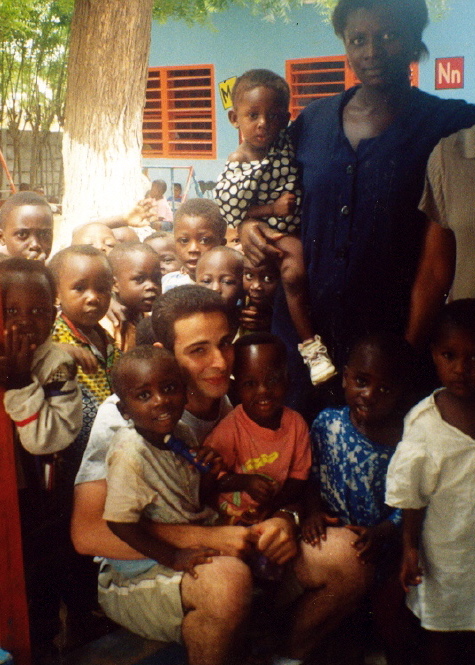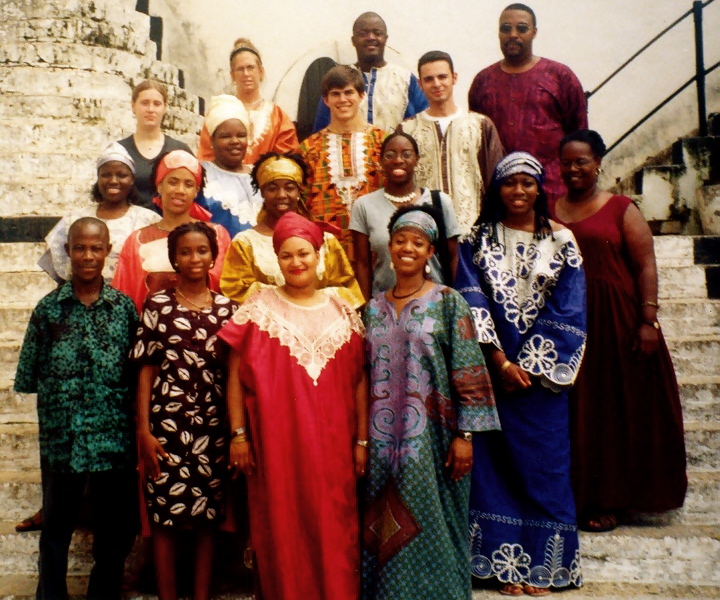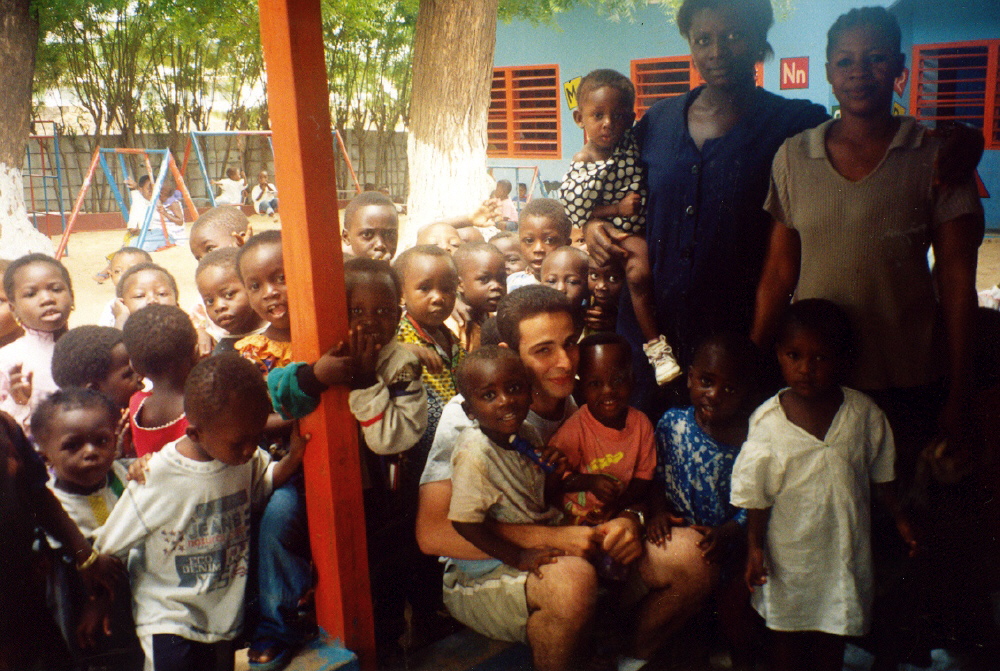Dr. Craig ‘Kwesi’ Brookins is an Associate Professor of Psychology at NC State University. He also leads a series of study abroad programs to various parts of Africa. This interview with Dr. Brookins provides insight into studying abroad through the eyes of a program director. [Editor’s note: I was a participant in a 1999 study abroad program to Ghana, which was led by Dr. Brookins]
What recommendations would you give for a student contemplating a study abroad program in West Africa (Ghana, Togo, Benin)?
Dr. Brookins: It is amazing to me that most students don’t have a passport so that would be the first thing to do regardless of when and where one ends up traveling. For West Africa, read up on the people, the culture and the politics. Learn about the past and present connections between West Africans and the United States. From the history of enslavement to current economic and cultural relationships. Travel with a program or university that has a successful track record in the country. The best thing you can do is to talk with students who have previously traveled with the program you are considering.
Why did you get involved in the program? Have your motivations been satisfied?
Dr. Brookins: My first trip to Africa was as a graduate student on a Kiswahili language study abroad program to Kenya in 1983. I got the bug, wanted to travel every year to the continent but did not make it back again until 1994 after I had completed graduate school. I learned from that initial experience how study abroad changes lives. It humbles you, educates you, opens your eyes, and motivates you to want to do more with your life than you even realized was possible. We started our study abroad programs at NC State University in 1997 to provide that experience for students. We have operated two to four programs annually to various parts of the continent since that time. You can find more information about these programs at this website.
Study abroad group at Elmina Castle © Gennaro Salamone
What was your favorite and least favorite experience in relation to leading a study abroad group?
Dr. Brookins: The first two weeks are always the least favorite as that is the time when many students (thankfully not all) have a difficult time pulling themselves out of their American selves. These days students are constantly plugged into technology to the point where I like to say they are uncomfortable and afraid of being in their own head. They’ve got their mp3s and cell phones with earphones and laptops and constantly in need of texting, tweeting and facebooking. So much so that they don’t initially realize they are in a really different place although it often times looks the same.
Nevertheless, my favorite part of every experience is in seeing students grow out of all of this, often to the point of not wanting to re-engage themselves in the American pace of life. Hopefully with all of this they have also gained a greater appreciation for the “other” in the world and in the process themselves.
How do locals perceive American students studying in their country?
Dr. Brookins: With the likely exception of those places where Americans are seen as occupiers, we are the most well known and often well liked people around the globe. Indeed, the ubiquitousness of American culture causes other people to know us better than we know ourselves. Americans are also seen as privileged, often arrogant, and possessing of disposable cash. Some will want to take advantage of that but most people just want to make an authentic connection and learn about the real America. Students fit into most of this but American students often don’t take the opportunity to learn from the people and places as much as they should. American arrogance, however, is often put in check either directly or by virtue of being humbled by the experiences.
School for street kids in Ghana © Gennaro Salamone
Do you see a significant change in students from the start to the end of the program? Explain.
Dr. Brookins: Absolutely. In the ways mentioned above, and, by the sheer fact that students slow down. They slow their thinking and reacting. Their perceived need for immediate gratification is changed as well. Students gain a perspective on the world that becomes more genuinely inclusive of other people because they have made a human connection with those people. Because students resist this for so long these changes continue to mostly occur after returning to the US.
What were the most significant changes that you’ve made from the early programs to the new ones?
Dr. Brookins: In Ghana we’ve always had home stays and according to the students they have always been the most beneficial part of the experience. Not all programs do that so the “change” has been not to make that change. In addition to West Africa (Ghana, Togo, Benin, Nigeria) we’ve been to East Africa (Kenya, Uganda, Rwanda and Tanzania), and Southern Africa (Botswana, Namibia and South Africa). Each program is different and, for instance, some of the programs have not provided the opportunity for staying with host families. What we’ve learned is that it is importance that each experience emphasizes making authentic and extended connections with the local people and culture, teaching about that, and placing the experience in contrast to the US experience and the future for development for the host country.
___________________________________________________________________________________
 Gennaro Salamone is the founder and editor of Enduring Wanderlust. Feel free to contact him with questions, comments, or inquiries with reference to contributing an article or photograph for publication.
Gennaro Salamone is the founder and editor of Enduring Wanderlust. Feel free to contact him with questions, comments, or inquiries with reference to contributing an article or photograph for publication.
Receive our free content by e-mail directly to your inbox or through an RSS reader.




Todd
Interesting stuff. Sounds like an amazing experience. Would love to try a study abroad in West Africa.
Alice
Nice tips. I’ve been considering a study trip for a year or so. Will keep this in mind.
Andy P.
I like the focus on being fully integrated into the place your studying or visiting. Technology does a great job of connecting people, but sometimes it distracts you from the bigger picture and the people around you.
Bluegreen Kirk
I certainly wish I would have taken the opportunity to study aboard when I had the chance. I have to visit both Ghana and Ethiopia soon.
Rachel
Great tips. I’ve been considering study abroad for a while now, and I’ll be sure to try and remember these – especially the part of letting go of our American selves.
Rachel
Jana Washington
I would love to visit Ghana!!!!